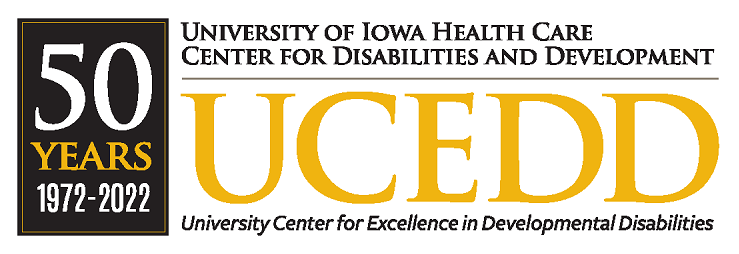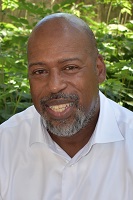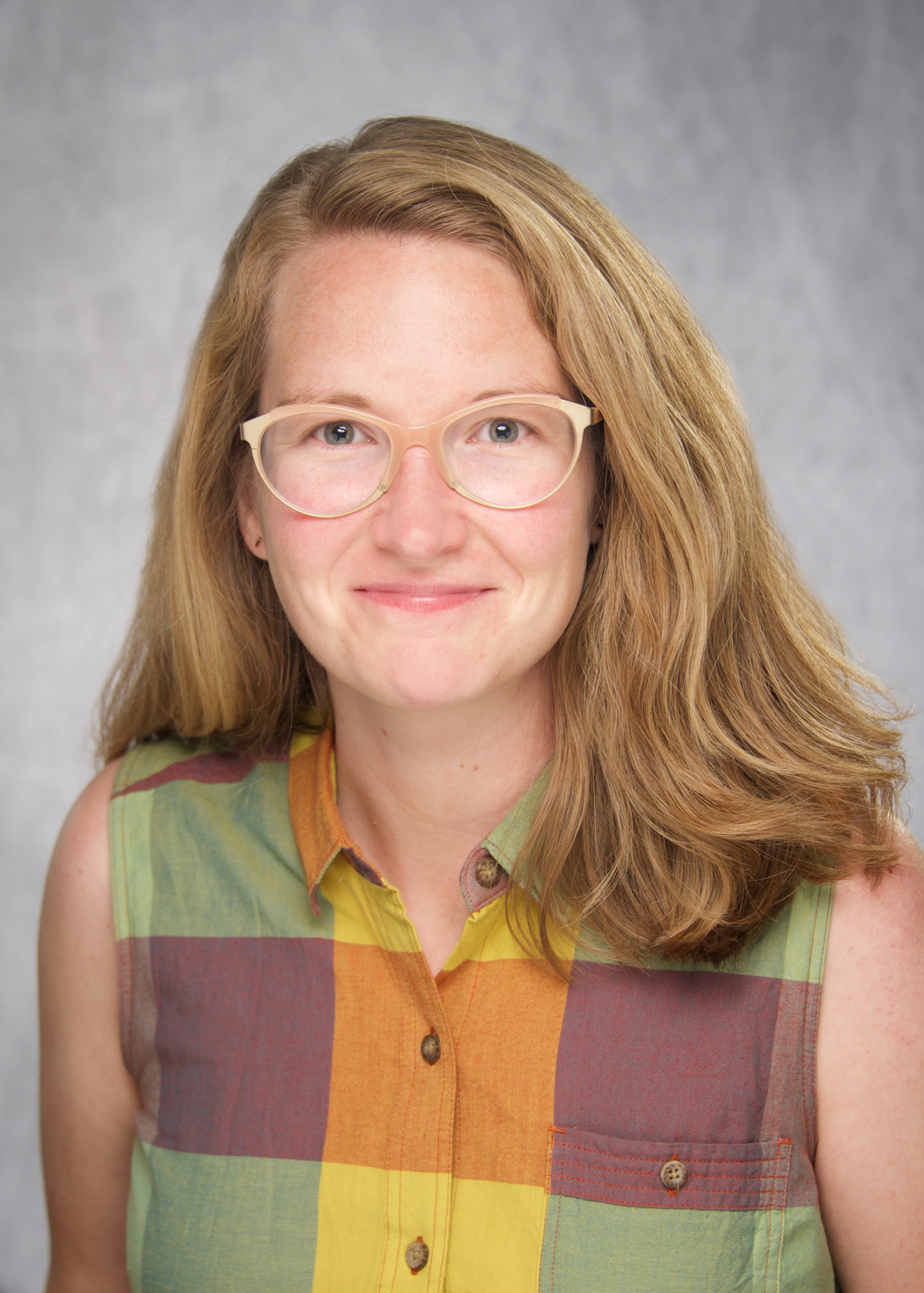About Our UCEDD
Center for Disabilities and Development
The Center for Disabilities and Development (CDD) has been Iowa's University Center for Excellence in Developmental Disabilities (UCEDD) since 1972. Join us as we recognize the 50th anniversary of Iowa's UCEDD throughout 2022!

Originally established as the residential University Hospital School by the Iowa Legislature in 1947, CDD has evolved over the years in response to every major advance in disability policy in the United States. CDD now serves as Iowa's tertiary level diagnosis and evaluation center, providing support for Iowa schools, and developing and implementing many state and community programs.
CDD is a member of the Association of University Centers on Disabilities (AUCD), a national network of 67 University Centers for Excellence in Developmental Disabilities. CDD’s designation as Iowa’s UCEDD allows us to continue to broaden the scope of our mission and activities to improve the quality of life for Iowans with disabilities and their family members. We achieve this through:
- University training for future professionals
- Community training
- Clinical services and direct community supports
- Technical assistance to state and local agencies/organizations to improve services and build community capacity
- Research and policy analyses to identify emerging best practice and model services
- Statewide information and referral services for assistive technology and disability services
Vision and Mission
The Center for Disabilities and Development (CDD) shares the vision of "a life in the community for everyone." Part of University of Iowa’s Hospital and Clinics, CDD is dedicated to improving the health and full community participation of people with disabilities and advancing the community supports and services on which they rely. CDD partners with Iowans with disabilities, their family members, providers, state and local agencies, and many other stakeholders to achieve our mission and vision.
Clinics at CDD provide diagnostic and therapeutic services across the lifespan for individuals with disabilities from experts in the fields of Audiology, Education, Medicine, Nursing, Nutrition, Occupational Therapy, Pediatric Dentistry, Psychology, Physical Therapy, Social Services, and Speech-Language Pathology.
Learn more about CDD Clinical Services.
UCEDD Leadership and Staff

Derrick Willis, Director

Caitlin Owens, Associate Director
UCEDD Community Advisory Council (CPAC)
CDD's Community Partnership Advisory Council (CPAC) is comprised of people with disabilities, family members, and other stakeholders, who are actively engaged in addressing priority issues that affect the lives of individuals with disabilities. All CPAC members share a commitment to increasing the independence, productivity and community participation of people with disabilities, and building the capacity of Iowa’s service system to support them. The following resources provide more information for about about CPAC:
Diversity, Equity and Inclusion at CDD
The Center for Disabilities and Development is committed to maintaining a welcoming and diverse community of students, faculty and staff, with equal opportunity for all persons. We strive to maintain an environment of inclusion, where individual differences are respected and all feel welcome.
Trained interpreters provide real-time interpretation and translation services for patients in our clinic who are non-English speaking or who have hearing impairments.
Visitors using our websites will find the option to convert the sites into multiple languages using Google translator. Our statewide information and referral service about disability supports or assistive technology has language line translation for all callers.
We enhance the diversity of trainees in CDD’s Leadership Education in Neurodevelopmental Disabilities (LEND) training program by partnering with Upward Bound program to recruit students. We provide training programs and activities that provide interactive opportunities with minority and underserved populations throughout Iowa. We participate in career days for secondary students with an emphasis in school districts that serve under-represented populations in health-related fields.
We provide ongoing staff development to enhance cultural responsivness, using annual presentations, online self-assessment surveys, web links, training modules and video clips.